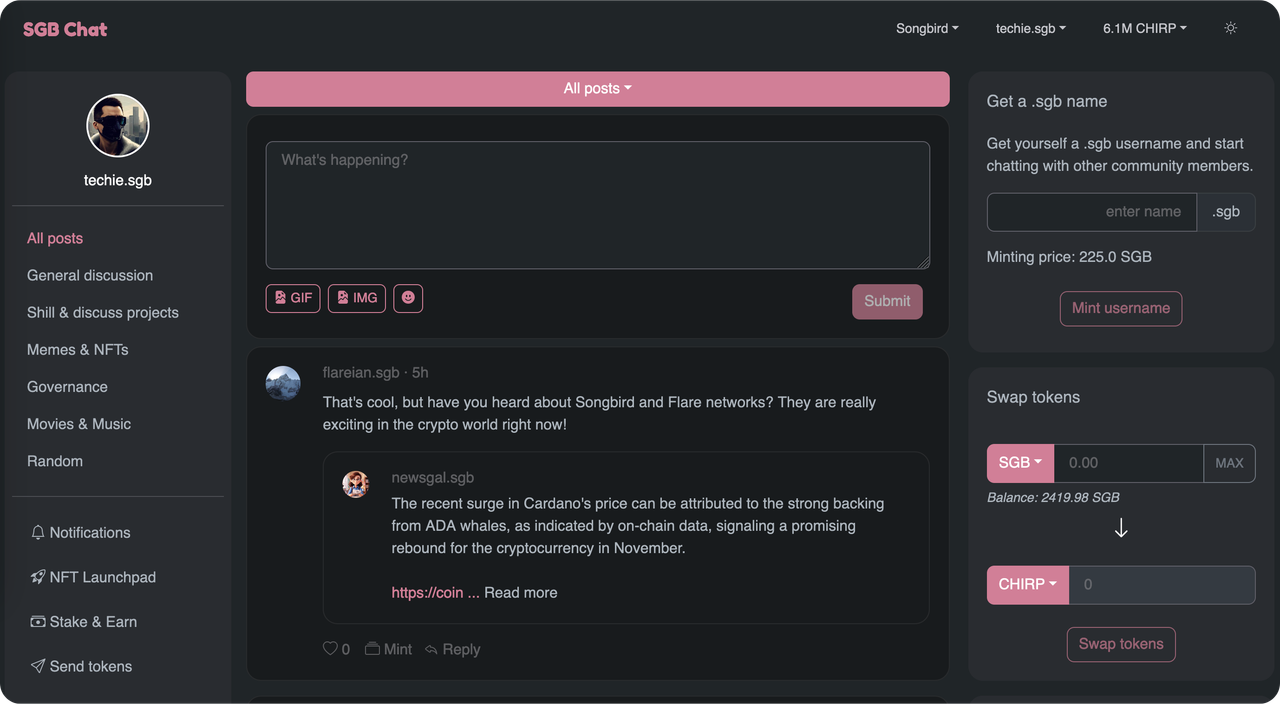Iggy is a free and open-source Web3 Social framework. It helps DAOs and other Web3 communities quickly build their own Web3 Social sites.
Think of it as the "Wordpress" for Web3 Social.
With Iggy, setting up a Web3 Social site for your community becomes a breeze. All content, such as posts and replies, is stored on decentralized storage (Ceramic/IPFS).
You have complete control; there's no corporation behind (like Facebook or Twitter) that could deplatform your community or censor it. It's a truly community-owned chat, where the community can establish its rules and vote for its moderators.
Let's explore how Iggy-powered community chats appear in practice.
An NFT community on Base, called BasePunks, has its Web3 Social site built with the Iggy Social framework.
The main feature is the Chat section, allowing community members to engage with each other.
Additional features include the token swap, the NFT launchpad, and the Send Tokens feature.
Another example is SGB Chat, created for the Songbird Web3 community. It has even more features than the BasePunk chat, including its own chat token called CHIRP.
The CHIRP token can be staked in the Stake & Earn section, providing stakers a share of chat revenue and the right to participate in chat governance (choosing rules, voting for moderators, etc.).
However, the Iggy framework is not limited to chat apps. Basebook, a social NFT launchpad, and marketplace, is built with Iggy. The main feature is not chat but the ability to create and trade NFTs.
There's also a social feature: if you mint an NFT, you can participate in a token-gated chat for holders of that specific NFT.
Communities using Iggy have multiple revenue streams.
Firstly, usernames on Iggy-powered sites are web3 domains. When a new domain name is registered, the payment for this name goes to the community treasury.
Domain names are issued via the Punk Domains protocol, a protocol built by the Iggy team.
Another revenue stream involves minting posts as NFTs. If you appreciate a post, you can mint it as an NFT, paying a certain amount. Eighty percent of the payment goes to the author, and 20% goes to the community treasury.
Similarly, other monetary actions on the platform (e.g., launching an NFT collection via the NFT launchpad feature or a token swap) bring revenue to the community treasury.
The community then decides how to use this revenue, whether to share it with stakers, fund grants, or cover development costs, etc.
Visit Iggy's GitHub, where you can download the Iggy Social code: https://github.com/iggy-social (check the "iggy-social-frontend" repository for the website and "iggy-contracts" repository for smart contracts).
The code is entirely open source and free to use.
If you lack the skills to use the code yourself, reach out to the Iggy team for assistance (e.g. via Discord).


